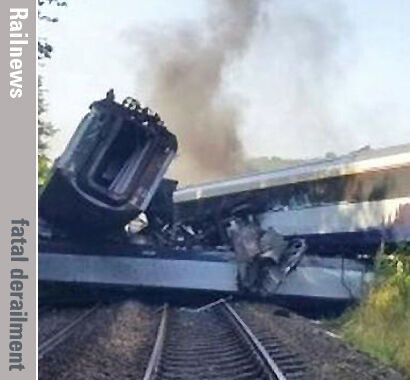The derailment of a ScotRail HST at Carmont, near Stonehaven in north east Scotland, was caused by Network Rail’s failure to impose a speed restriction and to maintain an embankment drain properly, a court has been told.
The derailment on 12 August 2020, in which three people lost their lives, happened after a Glasgow-bound train had been reversed at Carmont signal box because of another landslide further up the line, following several hours of very heavy rain.
The HST was returning to Aberdeen when it collided with debris on the track. The train collided with a bridge parapet and some of the vehicles overturned down an embankment in the crash, which claimed the lives of 45-year old driver Brett McCullough, 58-year old conductor Donald Dinnie and 62-year old passenger Christopher Stuchbury. Six people were hurt.
The High Court in Aberdeen was told that the drain had been built by contractor Carillion, which has since ceased trading, but Network Rail had not made sure it was constructed properly. It had also failed to have a handover meeting with Carillion after the work had been done, and did not have a proper system for deailing with the effects of bad weather. The Met Office had issued an amber ‘severe weather’ warning for the area a day earlier.
Prosecutor Alex Prentice KC told the court: ‘Network Rail cooperated fully with the investigation, and from the outset were clear that this case would result in a guilty plea.’
Network Rail has admitted two breaches of the Health and Safety at Work etc Act 1974.


